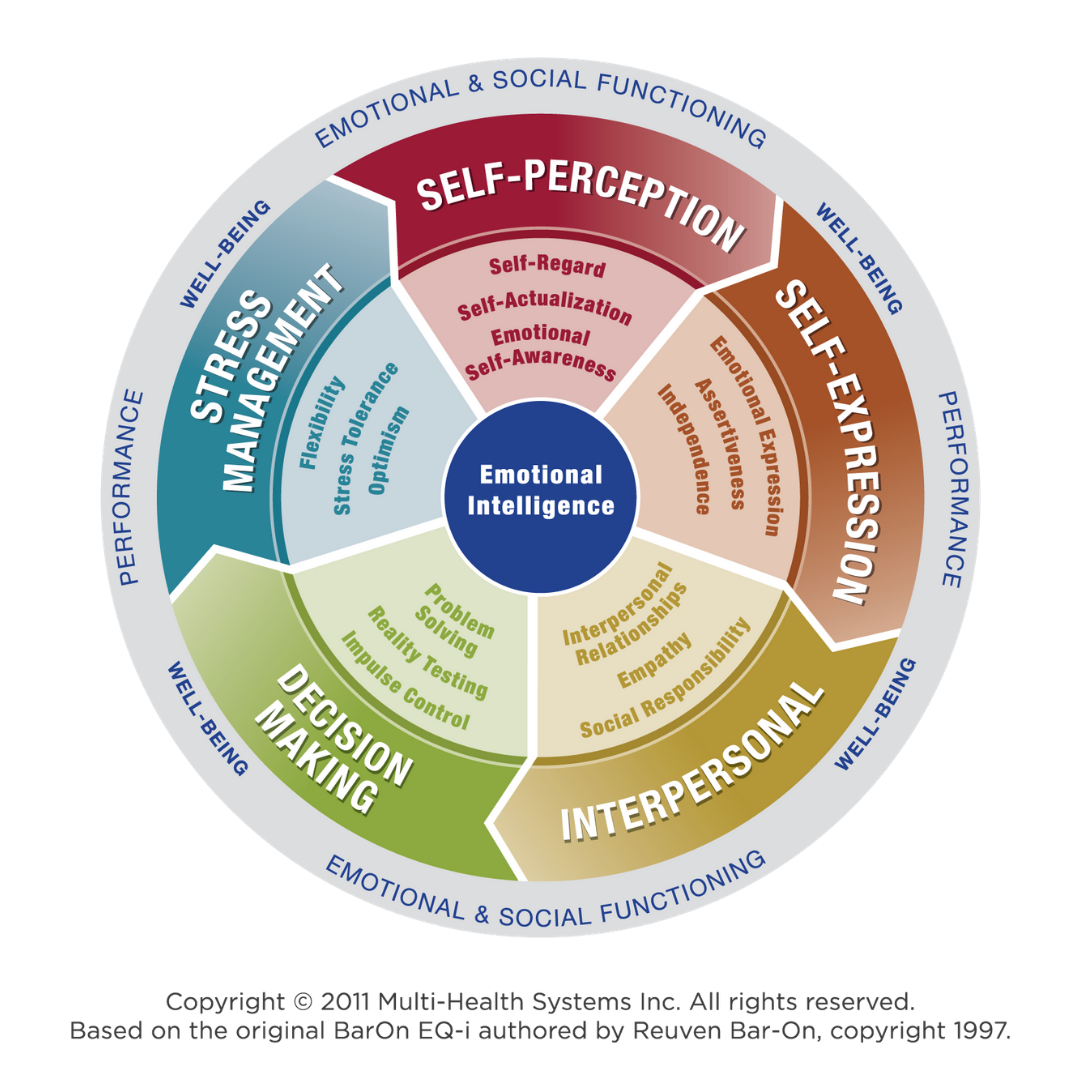What is Emotional Intelligence and Why Does It Matter?
Nov 12, 2022
Consider the challenges and desired outcomes below:
Inclusion
X -During business strategy meetings, I am often criticized for being too logical and technical, without considering other perspectives.
V - For this reason, I developed a step-by-step process for analyzing business problems from different perspectives. I am now able to provide valuable insights on business impacts during our monthly meetings.
Effective Communication
X - When I speak in public and in management meetings, I find it difficult to communicate my progress effectively. Unexpected questions make me feel uncomfortable and I fear looking foolish.
V -As a result of developing effective communication strategies, I feel confident when presenting my ideas. Because I've improved my communication skills, my views are now taken into account during management meetings.
Motivating Teams
X -Under high workload, my team struggles to perform, and I am unable to support them adequately.
V - By using EQ tools, I am now able to inspire, motivate, and engage my team while helping them prioritize their tasks. This has resulted in higher productivity levels every month.
Why Emotional Intelligence matters in the Digital Decade
In today's digital age, emotional intelligence is more important than ever. Your cognitive intelligence, or IQ, may help you get to your destination, but it's your emotional intelligence that guides you through the challenges you face along the way. Whether it's navigating inclusion, effective communication, or motivating teams, emotional intelligence is the key to successful performance levels.
With 4.66 billion active internet users worldwide and over 60% of the population having internet access, we are more connected than ever before. However, the pandemic of loneliness and social isolation has made it clear that we are also more disconnected than ever. This disconnect has led to poor management leadership, high employee turnover rates, and burnout among CEOs.
STEM professionals and industries are essential to driving the 4th Industrial Revolution, and strong leadership in STEM is crucial in the face of external challenges and stressors.
The building blocks of the EQ-i 2.0 Model

The EQ-i 2.0 model measures emotional and social skills that impact how we perceive and express ourselves, how we develop and maintain social relationships, and how we cope with challenges and emotional information.
By assessing an individual's emotional competencies using the EQ-i 2.0 model, leaders can predict and improve social functioning, communication, resilience, and time management skills. This can lead to dramatic improvements in performance, interpersonal interactions, and leadership potential.
Assessing a leader's emotional intelligence skills can help determine their ability to handle performance anxiety, communicate effectively, build rapport and trust with stakeholders, make sound decisions, and handle stress in a healthy manner. There is no one-size-fits-all solution, but understanding individuals' maps of the world and emotional intelligence can align organizational realities with people's realities, allowing everyone to move forward together on different maps of the world but on the same sheet of music.
Inclusion is one area where emotional intelligence can have a significant impact. By recognizing and considering different perspectives, individuals can provide advice that takes into account a wide range of viewpoints. Effective communication is another area where emotional intelligence plays a crucial role. By practicing communication strategies and speaking clearly and succinctly, individuals can feel confident and positive about themselves, which can result in their views being taken into account in meetings.
Motivating teams is another challenge that emotional intelligence can help overcome. By inspiring and engaging team members, helping them prioritize their workload and feel better about themselves, leaders can increase productivity and performance levels.
Overall, emotional intelligence is essential for success in today's digital era. Whether it's in the workplace or in personal relationships, emotional intelligence can help individuals navigate challenges, build strong relationships, and achieve their goals.
In conclusion, emotional intelligence is a crucial factor in navigating the complexities of the digital age and fostering strong leadership in various industries. By understanding and developing your emotional intelligence using tools like the EQ-i 2.0 model, you can enhance your communication, decision-making, and team management skills, which are essential for both personal and professional success.
Dive into the world of emotional intelligence by exploring these insightful blog posts on Self-Perception, Self-Expression, Interpersonal Skills, Decision-Making, and Stress Management.
If you're interested in exploring how emotional intelligence can make a difference in your life, book a call today and take the first step towards a more emotionally intelligent future.
I can help you overcome your unique challenges and goals, and I can provide insights and guidance on how to harness the power of emotional intelligence to create meaningful change in your personal and professional life. Don't miss out on the opportunity to unlock your full potential

